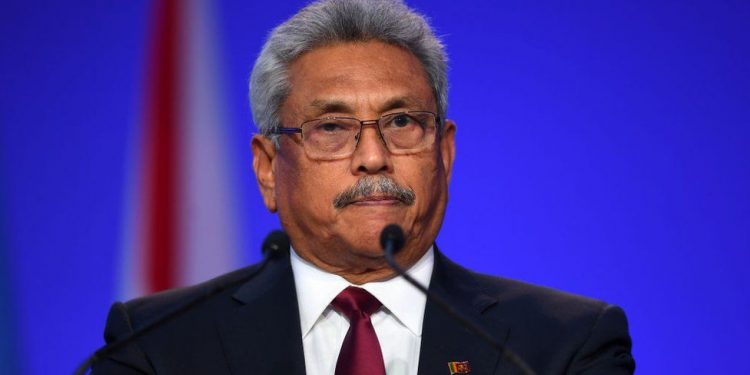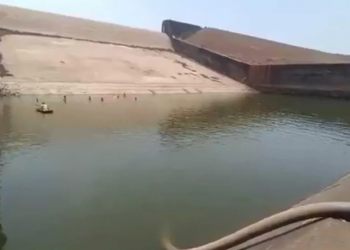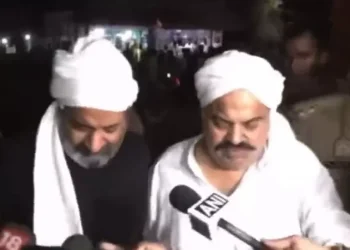Sri Lanka’s president Gotabaya Rajapaksa has fled the country, following mass protests over the island’s economic crisis.
Mr Rajapaksa left aboard a military jet, ending a familial dynasty that has ruled the country for decades. It is unclear where he is headed.
He had been in hiding after crowds stormed his residence on Saturday.
His brother, former Finance Minister Basil Rajapaksa, has also left the country, sources have told the BBC.
President Gotabaya Rajapaksa’s youngest brother was prevented from leaving the country 24 hours earlier but is now said to be heading to the US.
The president earlier pledged to resign on Wednesday amid mass protests.
Sri Lankans blame President Rajapaksa’s administration for their worst economic crisis in decades.
For months they have been struggling with daily power cuts and shortages of basics like fuel, food and medicines.
The authoritarian leader, who enjoys immunity from prosecution while he is president, is believed to have wanted to flee abroad before stepping down to avoid the possibility of arrest by the new administration.
The president’s departure threatens a potential power vacuum in the country, which needs a functioning government to help start digging it out of financial ruin.
Politicians from other parties have been talking about forming a new unity government but there is no sign they are near agreement yet. It’s also not clear if the public would accept what they come up with.
Under the constitution, it’s the prime minister who should act in the president’s stead if the latter resigns. The prime minister is considered the president’s deputy in parliament.
However, Mr Wickremesinghe is also deeply unpopular. Protesters set fire to his private residence on Saturday – he and his family were not inside – and he said he would resign to make way for a unity government, but gave no date.
That leaves the parliament’s speaker as the next most likely to step in as caretaker president, constitutional experts say. However Mahinda Yapa Abeywardena is an ally of the Rajapaksas. It is unclear whether the public would accept his authority.
Whoever does become acting president has 30 days to hold an election for a new president from among members of parliament. The winner of that vote could then see out the remainder of Mr Rajapaksa’s term until late 2024.
On Monday, the main opposition leader Sajith Premadasa told the BBC he would be tilting for the presidency. But he also lacks public support and there is deep public suspicion of politicians in general.
The protest movement which has brought Sri Lanka to the brink of change also does not have an obvious contender for the country’s leadership.
source: BBC


















































